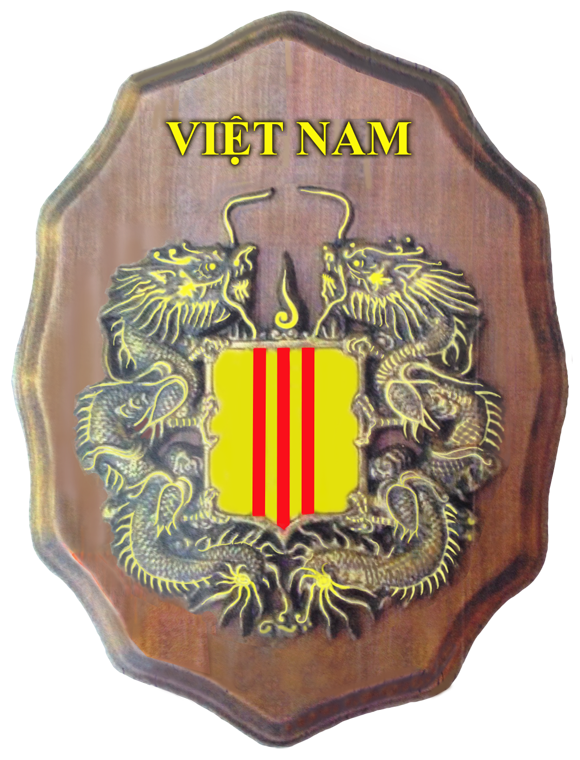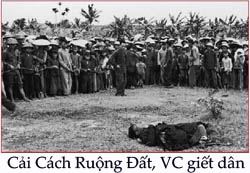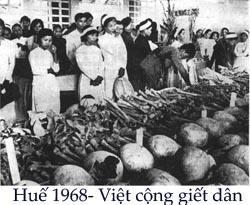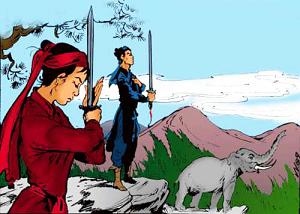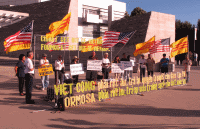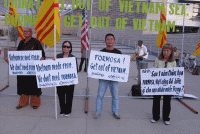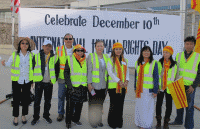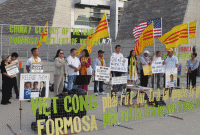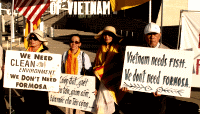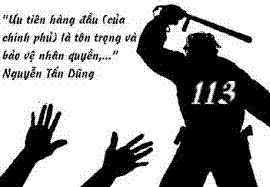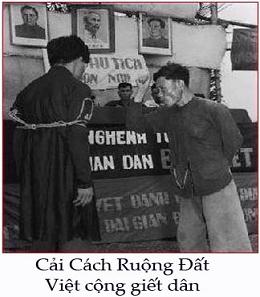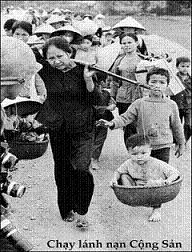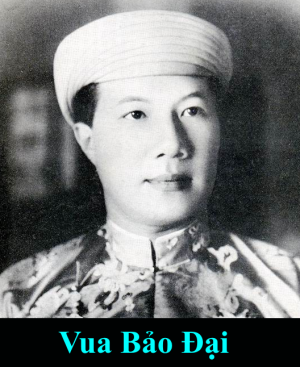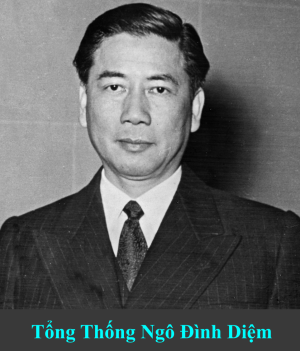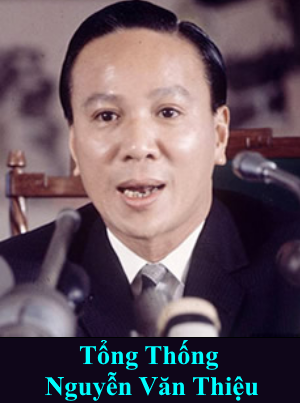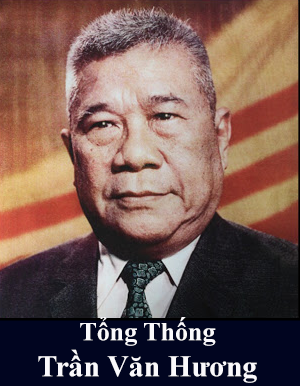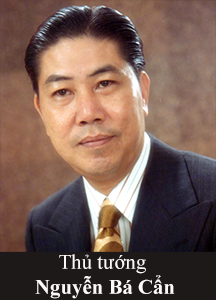Chào mừng Quý vị đến với trang web
Việt Nam Cộng Hòa Pháp Ðịnh !
Trang Chính Phủ Pháp Ðịnh Việt Nam Cộng Hòa
--------o0o--------
Đâu là sự thật ? Mặt trái của tấm huân chương Trung Cộng
Đâu là sự thật ?
Mặt trái của tấm huân chương Trung Cọng
( The World Factbook/CIA/Publications)
(traduit en Français et Anglais à la suite )
Lê Trọng Quát
“Những năm tôi theo Mao nay làm cho tôi luôn luôn hổ then…….
Khi chấp nhận cái nhãn hiệu mâu thuẩn vô-chính-phủ-thân-Mao(anarcho-maoïste)tôi đã thỏa hiệp với sự tàn sát hàng triệu người ở tận bên kia địa cầu“
André Glucksmann, triết gia Pháp
Nhật báo Le Figaro, Paris, ngày 9 và 10 tháng 9, 2006
Cũng như về Việt Nam, những lời bình luận về Trung Hoa Cộng sản tuôn tràn cồ nhiên với những qui mô lớn lao hơn nhiều.
Thật vậy, không ai ngờ vực sự thức dậy của Trung Quốc mà hơn hai thế kỹ trước, Nã-Phá-Luân Đệ-nhất của Pháp đã tiên đoán và gần đây văn hào Alain Peyrefitte của Hàn lâm viện Pháp quốc đã nhắc lại khi ông đặt tên cho tác phẩm của ông là : « Khi Trung Hoa thức dậy…..địa cầu rung chuyển », xuất bản năm 1973, sau chuyến viếng thăm và nghiên cứu của ông tại nước này.
Một sự thức dậy không thể không xảy ra, với Mao Trạch Đông hoặc không Mao Trạch Đông vì, thoát được và sống sót sau chiến tranh, được giải thoát khỏi sự chiếm đóng của quân đội Nhật Bản trên nhiều vùng của lãnh thổ đất nước, dân tộc Trung Hoa tuyệt đối cần phải sống và phải vượt ra khỏi nạn nghèo khổ kinh niên trong đó đại đa số dân chúng đã chìm đắm hàng ngàn năm vì một lý do chính là dân số quá đông.
Nếu không có Mao, cái giá của sự thức dậy chắc chắn đã thấp hơn nhiều, không phải bằng xương máu và nước mắt mà chỉ bằng mồ hôi và kết quả đã trăm lần tốt hơn cho dân Trung Hoa ở trên lục địa. Ở hải đảo Đài Loan, ở Hồng Kông, dù hoàn cảnh có khác nhau nhưng nhờ vắng bóng Mao, dân Trung hoa đã thành công rực rỡ và đã có được một số phận tốt đẹp hơn nhiều, không thể so sánh được, về dân chủ, tự do và cố nhiên về đời sống vật chất.
Nhưng từ cuối đáy vực thẳm, Trung hoa đã từ từ phục hồi sau khi Mao chết và nhờ chính sách mở rộng cửa của Đặng Tiểu Bình với những cải cách kinh tế tận gốc đi từ chính sách kinh tế Mao trạch Đông, phản kinh tế và tai hại đến chính sách kinh tế thị trường của hệ thống tư bản, kẻ thù không đội trời chung của họ Mao. Tỷ suất tăng trưởng có khi đến hai số từ khúc quanh lịch sử này được giải thích nhờ phần lớn ở chỉ số khởi đầu quá thấp, di sản của Mao để lại cho hậu thế của y.
Nếu « bước nhảy vọt « của y đã nhận chìm Trung Hoa trong một tình trạng cùng cực tuyệt đối, chưa kể hơn 30 triệu người chết đói thì chính sách mở rộng cửa của họ Đặng đã đưa quốc gia này từ từ ra khỏi tình trạng bi thảm này, thay thế giáo điều mù quáng bằng chủ trương thực tiễn can đảm, đi ngược lại với chủ thuyết kinh tế mác-xít và biến đởi phong cảnh xã hội của thời đại Mao.
Nhưng khốn thay, tấm huân chương của họ Đặng đã dành được không tách rời được cái mặt trái của nó.
Thực vậy, nếu chủ trương thực tiển kinh tế của ông ta đã cứu dân Trung Hoa khỏi sự khốn cùng toàn diện thì ngược lại, chính sách này làm lợi tối đa cho một thiểu số gồm các cấp lãnh đạo và cán bộ đảng Cộng sản cùng với một số đông người làm ăn toa rập với chúng, trở thành những nhà « tư bản đỏ » bằng sự lợi dụng quyền thế và tham ô, được hệ thống hóa, từ chính quyền trung ương đến các chức trách địa phương của các xóm làng thôn quê.
Trên tổng số dân 1 tỷ 3, khoảng 1 tỷ sống ở nông thôn, và chưa đến một phần năm của dân quê thoát được nạn nghèo khổ do những hoạt động trong nghề nông, trong tiểu công nghệ, trong tiểu thương. Đại đa số 800 triệu người còn lại, những kẻ không tài sản, xoay xở sống lây lất qua ngày, không ước mong, không có ngày mai, không có gì cả.. Bán máu đều đều để có cái ăn mà sống qua ngày không phải là một trường hợp đặc biệt nữa như chúng ta đã thường thấy trong các thiên phóng sự. Các cơ quan kiểm duyệt, đã quá bề bộn, không còn nhọc công ngăn cấm nữa.
Đối với những dân quê còn đủ sức và có phương tiện để tìm đến các đô thị- xa cả nghìn hay nhiều trăm cây số - điều mơ ước là kiếm được một việc làm nào đấy trong một công trường xây cất hoặc trong một toán phu quét đường và lượm rác, không hợp đồng tuyển dụng,, không bảo hiểm bệnh tật, và cố nhiên không trợ cấp thất nghiệp.lúc mất việc.
Những đạo quân di dân nội địa ấy, khỏang chừng 150 triệu người, rải rác khắp nước Trung Hoa mênh mông, đổ về các đô thị và thành phố trên miền duyên hải, phải mang thẻ lưu thông, một thứ thông hành nội địa mà nếu không có, dù là dân Trung Hoa chính cống, họ cũng không được vào trú ngụ.. Ngoại trừ trường hợp người dân quê khổ sở này đút lót được anh công an cảnh sát có nhiệm vụ kiểm soát « di dân nội địa. ».
Chui rúc năm, mười người trong một căn nhà tồn thiếu tiện nghi dựng lên cạnh công trường, những người thợ không chuyên môn rõ rệt này chỉ về quê trong vài hôm vào dịp Tết thăm gia đình mà họ xa cách suốt năm. Với lương tháng khoảng 100 đô la Mỹ, họ tự cho là đã được may mắn nhiều và nhiều đồng bào của họ đã thèm muốn số phận của họ bởi thiếu phương tiện, không rời quê được mà phải dính chặc với mảnh đất của tổ tiên để lại. Những người này cũng làm việc trong nghề nông. Và nông nghiệp chỉ đóng góp được 12,5 % của lợi nhuận quốc gia, phân tách theo từng ngành hoạt động trong lúc nông dân nói chung chiếm 49 % của toàn thể nhân lực quốc gia trong năm 2005.
Giữa tầng lớp cầm quyền và thủ lợi và quảng đại quần chúng, cái hố phân cách càng ngày càng được đào sâu. Tỷ phú và triệu phú một bên và bên kia, đối diện, là nhiều trăm triệu người nghèo khổ, đã tạo nên một tình trạng xúc động công khai đến nổi chính Thủ Tướng Vương Gia bảo cũng phải tuyên bố rằng sự canh tân hóa quốc gia làm lợi quá ít cho nông dân, nông thôn đã bị hy sinh nặng nề, và « một sự sai lầm lịch sử đã xảy ra trong việc giải quyết các vấn đề nông thôn ». Bài diễn văn đọc ngày 29 tháng 12, 2005 nhung được đăng rất trể trên Nhật báo Nhân Dân của đảng Cộng Sản. Cũng trong dịp này, nhiều con số được công bố : các vụ phản đối gia tăng 13%, 87 000 « hồ sở hình sự » được thẩm cứu tại các tòa án, theo thông cáo ngày 19 tháng giêng 2006 của bộ Công An. Không có an sinh xã hội,, không có hưu bổng đúng mức, không có bảo hiểm bệnh tật,, không có trợ cấp thất nghiệp, không có gì cả cho gần một tỷ người nam nữ ở nông thôn mà hai phần ba bị bỏ bên lề xã hội, hoàn toàn tùy thuộc các nhà chức trách địa phương mà họ chống đối trước những vụ lạm quyền, trước những vụ trưng thu nhà cửa đất đai không được bồi thường thỏa đáng.chút nào.
Nhiều lực lượng công an đã bắn vào những người nổi dậy trong tháng chạp năm qua và đầu năm nay, nhiều người dân quê đã bị án tù chỉ vì họ đã dám phản đồi các vụ ô nhiểm bởi hơi độc thoát ra từ những nhà máy quốc doanh sản xuất thuốc sát trùng.
Trước cơn thịnh nộ đang dâng lên của quần chúng ở nông thôn, cái khối quần chúng ngày xưa đã tạo nên sự nghiệp của Mao và của đảng Cộng sản của y năm 1949, Vương Gia Bảo đã buộc phải thị sát khắp nước cố gắng chận đứng sự phát triển nguy hiểm của một phong trào chống đối đang manh nha trở thành một cuộc nổi dậy. Các cơ sở địa phương được cảnh cáo về trách nhiệm của họ về tình hình chính trị trong vùng.
Những con số dưới đây kèm theo những cảnh tượng do chính chính phủ ghi nhận- dù còn rất xa sự thật- nhưng đã quá đủ để thế giới nhận chân cái bề trái u buồn và mờ xám của tấm huân chương Trung Quốc.
Nhưng như tôi đã viết trong bài trước về Việt Nam (« Đâu là sự thật ? Tỷ lệ thất nghiệp và ngưỡng nghèo khổ ở Việt Nam và Trung Quốc » ) bộ máy cộng sản Trung Quốc không để đàn em Việt Cọng qua mặt dù trong lãnh vực « quảng cáo gian dối » hay nói trắng ra tuyên truyền láo.
Mặc dù với một tỷ người nam nữ sớng khổ sở trong những điều kiện đặc biệt khó khăn, làm viẹc vất vả mổi ngày để kiếm miếng ăn, cách xa hẳn với các tầng lớp ưu đãi, thua kém xa tầng lớp trung lưu ở thị thành, mặc dù vậy chính phủ Trung Hoa vẫn tuyên bố không chút ngượng ngập chỉ có 10 % tổng số dân chúng ở dưới mức nghèo khổ. Một tỷ lệ mà hiếm nước đạt được nếu người ta biết rằng siêu cường Hoa Kỳ và Anh quốc, hai nước giàu trong những nước giàu nhất của G7 ( Nhóm 7 quốc gia kỹ nghệ hóa nhất thế giới) công bố 12 và 17 % dân số của hai nước họ ở dưới mức nghèo khổ năm 2004 và 2005.
Tôi xin nhắc lại một ý kiến tôi đã bày tỏ về quan niệm ngưỡng nghèo khổ trong bài trước bàn về Việt Nam. Ấn định ngưỡng nghèo khổ (seuil de pauvreté) ở một quốc gia thuộc thẩm quyền của quốc gia ấy. Thế nhưng trên bình diện toàn cầu, sự ấn định này cũng phải dựa trên những tiêu chuẩn chung, căn cứ trên nhu cầu phổ quát của con người đảm bảo cho mình một mức sống tối thiểu nghĩa là ăn đủ no, có nơi ở đơn sơ, khi đau ốm được chữa bệnh và thụ hưởng được học vấn. Phẩm giá của con người phải được mọi xã hội văn minh xứng đáng với danh hiệu của nó tôn trọng, và việc quan niệm ngưỡng nghèo khổ phát xuất từ sự tôn trọng này phải bao gôm toàn diện đời sống của con người., bất luận là người Việt, người Tàu, người Mỹ hay người Anh Và mức sống tối thiểu (minimum vital)- yếu tố ấn định ngưỡng nghèo khổ - dù theo chuẩn mức Trung hoa, cũng phải thỏa mãn được các nhu cầu thiết yếu của một con người và gia đình của họ
Mặt khác, tỷ suất nghèo khổ công bố 10% hoàn toàn không tương ứng với tình trạng nhân dụng nghiêm trọng như đã được quan sát, nhất là với tỷ suất thât nghiệp 20% trên bình diện quốc gia năm 2005, một con số do cơ quan chính thức của đảng Cộng Sản, Nhân Dân Nhật Báo, đưa ra, nghĩa là còn rất xa với thực tế.
Nếu, vẫn theo tờ báo này, các vùng đô thị chỉ có 9% dân thất nghiệp trong tỷ suất toàn thể 20%, chúng ta có thể diễn dịch tình trạng trầm trọng của thị trường nhân dụng ở các vùng nông thôn, nơi chen chúc của một tỷ người mà nhiều trăm triệu người thất nghiệp, không trợ cấp, không lợi tức, phải chìm đắm trong tình cảnh nghèo nàn cùng tột.
Trong những điều kiện như vậy, làm sao minh chứng được một tỷ lệ 90 % dân số ở trên ngưỡng nghèo khổ, một tỷ lệ quá cao đến độ dân chúng Hoa Kỳ, thịnh vượng nhất địa cầu, còn lâu mới đạt được
Mới gần đây, chính phủ Trung Hoa từ chối không nhận vào nước nhiều đồng bào của họ nhập lậu vào Pháp, bị trục xuất và trả về nguyên quán. Hàng ngàn trường hợp tương tự được kiểm kê ở Úc, ở Gia-nã -đại, ở Hoa Kỳ và các nước Tây phương khác. Những người khốn khổ này đã cam kết trước khi đi sẽ trả lần cho những kẻ « dẫn đường » nhiều chục ngàn đổ-la Mỹ ít lâu sau khi đến nơi, một cam kết có thể làm họ mất mạng nếu không thi hành. Vì vậy,họ phải lao động hết sức vất vã như những người nô lệ của thời đại tân tiến này, và cố nhiên làm lậu, trong những căn hầm hoặc xưởng làm kín đáo và thiếu vệ sinh hại cho sức khoẻ, 12 giờ hoặc hơn nữa mổi ngày, để có thể trả nợ trong vài năm.
Thế nhưng, quốc gia của họ, Trung quốc, được sắp hạng « cường quốc kinh tế » thứ nhì hay thứ bảy của thế giới tùy theo sự căn cứ trên tổng sản lượng nội địa (produit intérieur brut) tính theo tương quan mãi lực (à parité de pouvoir d’achat) ước tính 8859 tỷ dô–la Mỹ, hay tính theo hối đoái chính thức 2225 tỷ. vào năm 2005.
Nhưng để gíúp cho người bình dân hiểu rõ hơn khi đọc những con số này mà sự khả tín đang còn phải xét lại trong trường hợp của các nước cộng sản trước kia và bây giờ, thiết tưởng cần lưu ý rằng tổng sản lượng nói trên phải chia cho 1 tỷ 300 triệu người với những chênh lệch lớn lao mà chúng ta vừa chứng kiến, theo đó một thiểu số rất nhỏ chiếm đoạt một phần lớn tài sản quốc gia trong lúc đại đa số dân chúng sống rất chật vật mà không mở miệng được để hét lên nổi bất bằng và đòi lại cái phần chính đáng của mình.
Lê Trọng Quát
Paris, tháng 11 , 2006
*********************************
Où en est la vérité ? Ou le revers de la médaille chinoise ( The World Factbook/CIA/Publications)
Le Trong Quat
« Mes années maoïstes me font toujours honte…… En acceptant l’étiquette contradictoire anarcho-maoïste, je pactisai avec le meurtre de dizaines de millions d’hommes aux antipodes » André Glucksmann, philosophe français –Le Figaro, 9 et 10 Septembre 2006
Comme au Viet Nam, les commentaires continuent d’abonder, certainement en des proportions beaucoup plus importantes, sur la Chine communiste. Certes, personne ne doute du réveil de la Chine, que déjà plus de deux siècles Napoléon 1er avait prédit et qu’Alain Peyrefitte, de l’Académie française, a rappelé en le prenant comme titre de son livre : « Quand la Chine s’éveillera……le monde tremblera » , paru en 1973 après son voyage d’ études dans ce pays. Un réveil inéluctable avec Mao–Tsé-Tung ou sans Mao car, sortis vivants de la guerre, libérés de l’occupation japonaise, les Chinois avaient absolument besoin de vivre et d’échapper à la misère endémique dans laquelle une grande partie du peuple, parce que trop nombreuse, s’est plongée depuis des millénaires.
Sans Mao, le prix du réveil aurait été certainement beaucoup moins cher, en larmes et en sang. Il aurait été seulement en sueur et le résultat aurait dû être cent fois plus bénéfique pour tous les Chinois sur le continent. Seulement sur le continent car à Taîwan, à Hong Kong, grâce à l’absence de Mao, leurs compatriotes ont connu un sort bien meilleur, défiant toute comparaison, en terme de démocratie, de liberté et bien entendu,de bien–être matériel. Mais du fond de l’abîme, la Chine s’est redressée peu à peu après sa mort avec la politique d’ouverture de Deng Xiaoping et ses réformes radicales en matière d’économie, allant du système maoïste anti-économique et néfaste à l’économie de marché du système capitaliste, ennemi juré de Mao.
Le taux de croissance parfois à deux chiffres depuis ce tournant historique s’est expliqué notamment par l’indice de départ particulièrement bas, héritage que Mao avait laissé à sa postérité.. Si « le bond en avant » de ce dernier eut plongé la Chine dans la misère absolue, sans compter la mort de famine de plus de trente millions de chinois, la politique d’ouverture de Deng l’en a sortie progressivement, remplaçant l’idéologie aveugle par un pragmatisme audacieux allant à l’encontre de la doctrine économique marxiste et modifiant le paysage social tel qu’il avait été crèé sous le règne de Mao Mais, malheureusement, la médaille que Deng avait conquise n’est pas sans son revers En effet, si son pragmatisme économique avait sauvé son pays d’une misère atroce et généralisée, c'est-à-dire n’épargnant personne,par contre il profite au maximum à une minorité que constituent les dirigeants et les cadres du Parti ainsi que des hommes d’affaires combinards, devenus « capitalistes rouges » par les abus de pouvoir et la corruption érigés en système, du gouvernement central aux plus petites autorités locales des villages perdus dans la campagne.
Sur 1,3 milliard d’habitants, un milliard y vit, dont à peine un cinquième échappe à la pauvreté, se livrant à des activités dans l’agriculture, l’artisanat, le petit commerce. Le grand reste de 800 millions de paysans déshérités se débrouille tant bien que mal pour survivre, sans espérance, sans lendemain, au jour le jour. sans rien. Vendre son sang, et de façon régulière, pour avoir de quoi se nourrir ne constitue pas un cas exceptionnel qu’on trouvait dans les reportages. La censure, déjà surchargée, ne s’est plus donné la peine de les interdire. Pour ceux qui ont la force et les moyens d’aller en ville – parfois un millier, souvent des centaines de kilomètres à parcourir – leur rêve serait d’y trouver un travail quelconque, un emploi dans un chantier de construction, ou à défaut, dans les équipes municipales de ramassage d’ordures, sans contrat d’embauche, sans assurance–maladie, sans indemnité de chômage bien évidemment !
Ces armées de migrants intérieurs comptent environ 150 millions, éparpillés dans l’immense continent chinois, déferlant sur les cités et les villes côtières, munis obligatoirement d’un laissez – passer, sorte de passeport intérieur sans lequel, Chinois comme ils le sont, l’entrée dans les villes leur serait impitoyablement refusée. Sauf que notre pauvre paysan aura graissé la patte à un agent de police y contrôlant l’accès. Grouillant à cinq ou dix dans une baraque sans aucun confort, campée à côté du chantier, ces travailleurs sans qualification précise ne reviennent chez eux dans leur village lointain qu’à l’occasion de la fête du Têt pour passer quelques jours avec leur famille dont ils sont séparés toute l’année. Gagnant l’équivalent d’environ 100 dollars américains par mois, ils s’estiment déjà très chanceux, faisant l’envie de leurs compatriotes attachés involontairement à la terre ancestrale. Ceux-ci font marcher l’agriculture qui rapporte 12,5% du PIB ( produit intérieur brut) analysé en secteurs d’activités alors qu’ils représentent 49 % de la main-d’œuvre globale du pays, qui compte 791,4 millions en 2005.Entre la classe dirigeante et privilégiée et la grande masse de la population le fossé s’est creusé, chaque jour plus profond. Richissimes et millionnaires d’un côté, ces centaines de millions d’indigents de l’autre, créaient une situation tellement dramatique et flagrante que le Premier ministre Wen Jia Bao lui-même n’a pu s’empêcher de déclarer que « la modernisation de son pays profite trop peu aux paysans, que la campagne a été lourdement sacrifìée, qu’une erreur historique a été commise sur les questions rurales. ». Discours prononcé le 29 décembre 2005 mais publié tardivement sur le « Quotidien du peuple » ( Nhân Dân Nhật Báo ), organe officiel du Parti communiste chinois.
Par la même occasion, plusieurs chiffres ont été révélés : augmentation de 13 % de protestations, 87.000 « dossiers criminels » faisant l’objet d’instructions dans les tribunaux, selon le communiqué du 19 janvier 2006 du ministère de la Sécurité. Pas de sécurité sociale, pas de retraite correcte, pas d’assurance – maladie, pas d’indemnité de chômage, rien, rien pour près d’un milliard d’hommes et de femmes, dont deux tiers sont vraiment des laissés pour compte à la merci des autorités locales contre lesquelles ils se sont révoltés par suite des abus de pouvoir, des expropriations de maisons , de terrains très insuffisamment indemnisées. Des forces de sécurité ont ouvert le feu sur les révoltés en décembre dernier et au début de cette année, des peines de prison ferme ont été prononcées contre des paysans ayant manifesté pour protester contre les pollutions provoquées par les gaz toxiques émanant des usines d’État productrices d’insecticides. Devant la colère montante de la masse paysanne, jadis la force révolutionnaire qui avait créé l’avènement de Mao et de son parti communiste en 1949, Wen Jia Bao a été forcé de faire le tour du pays pour tenter d’enrayer le développement dangereux d’un mouvement protestataire glissant vers la rébellion .Les autorités provinciales et locales ont été averties par le Premier ministre lui-même qu’elles sont entièrement responsables de la situation politique de leur région
En voilà quelques chiffres suivis de tableaux dépeints par le gouvernement lui-même, encore bien loin de la réalité mais largement suffisants déjà pour montrer au monde le triste et grisâtre revers de la médaille chinoise. Mais comme je l’avais écrit dans mon dernier article sur le Viet Nam ( Où en est la vérité ? Taux de chômage et seuil de pauvreté au Viet Nam et en Chine – The World Factbook/Cia/publications/facfbook) l’appareil communiste chinois ne se laisse pas dépasser par son petit frère vietnamien, même en matière de « publicité mensongère. » ou plus crûment, de propagande. Malgré son milliard d’hommes et de femmes subsistant dans des conditions parti -culièrement difficiles, trimant dur chaque jour pour avoir leur pain quotidien, aux antipodes des classes privilégìées et bien loin de la classe moyenne vivant dans les villes, malgré tout cela, le gouvernement chinois annonce sans complexe que seulement 10 % de sa population totale restent au-dessous du seuil de pauvreté. Pourcentage que bien peu de pays au monde ont pu atteindre si l’on savait que la superpuissance Etats-Unis d’Amérique et le Royaume Uni, riches parmi les plus riches ( du G 7 , Groupe des 7 pays les plus industrialisés du monde) ont affiché 12 % et 17 % de leur population respective au-dessous de la ligne de pauvreté en 2004 et 2005.
Notons que le seuil de pauvreté a ses critères universels, que sa conceptualisation qui doit s’inspirer du respect de la dignité humaine, englobe nécessairement différentes dimensions de l’existence d’un homme, qu’il soit Vietnamien, Chinois, Anglais ou Américain. Et que le minimum vital – facteur de détermination du seuil - même dans les normes chinoises, doive être en mesure de satisfaire les besoins essentiels de l’homme et de sa famille Par ailleurs, le taux de pauvreté proclamé de 10 % ne correspond en aucune façon à la situation critique de l’emploi telle qu’elle a été observée et notamment à celui du chômage, 20 % au niveau national en 2005, chiffre publìé par l’organe officiel du Parti communiste, le Quotidien du Peuple (Nhân Dân Nhật báo), c’est-ầ -dire encore bien loin de la réalité.
Si les régions urbaines en ont enregistré 9 % ,toujours selon ce journal, sur le taux global de 20 % on peut en déduire la gravité de la situation du marché du travail dans les zones rurales où grouillent près d’un milliard de gens dont des centaines de millions de chômeurs sans indemnités, sans ressources, ne peuvent que sombrer dans la misère .totale.. Comment dans ces conditions justifier un pourcentage de 90 % de la population au-dessus du seuil de pauvreté, un taux si élevé que même la nation américaine, la plus prospère de la planète, n’est pas près d’atteindre. Tout récemment, vers mi- septembre dernier, le gouvernement chinois a refusé d’accepter le retour des centaines de ses citoyens, immigrés clandestins en France, expulsés et renvoyés dans leur pays d’origine. Des milliers de cas semblables se comptent en Australie, au Canada, aux Etats-Unis et dans d’autres pays occidentaux. Ces personnes malheureuses s’étaient engagées avant leur départ à payer plusieurs dizaines de milliers de dollars aux « passeurs » quelque temps après leur arrivée à destination, engagement susceptible de leur coûter la vie en cas de non-exécution Aussi, ont-ils dû trimer dur comme des esclaves des temps modernes et, bien entendu, clandestinement, dans des sous-sols et des ateliers isolés et insalubres, 12 heures ou plus chaque jour,afin de pouvoir s’acquitter de leur dette au bout de quelques années. Mais leur pays, la Chine, est classée 2e ou 7e puissance économique du monde selon qu’on considère le produit intérieur brut de ce pays, en parité de pouvoir d’achat (PIB en PPP) soit 8 859 milliards de dollars USA en 2005, ou en taux de change officiel, soit 2 225 milliards. Alors, faudrait-il, pour une meilleure compréhension de l’homme de la rue à la lecture de ces chiffres dont la crédibilité resterait incertaine,comme ce fut et c’est encore le cas dans les pays communistes, rappeler que ce PIB global est à partager à 1 milliard 300 millions d’individus avec des disparités vertigineuses que nous venons de voir et par suite desquelles, une petite minorité de gens accapare une partie importante des richesses nationales pendant que l’immense majorité du peuple subsiste ou survit sans pouvoir s’exprimer librement pour crier son mécontentement et réclamer son dû.
Le Trong Quat
Paris, Novembre 2006
**********************************************************
Where is the truth? Or the other side of the Chinese success. ( The World Facbơok/CIA/Publications)
Le Trong Quat
“I am still ashamed of my Marxist years… By endorsing the contradictory anarchist-maoist label, I came on terms with the murder of ten of million men and women at the antipodes”. André Glucksmann, French philosopher - Le Figaro, September 9 and 10,2006
Like with Vietnam but with more abundance, comments continue to abound on communist China. Indeed no one doubts of the awakening of China. An awakening predicted by Napoleon 1st more than two hundred years ago and that Alain Peyrifitte, of the Academie Francaise, has reiterated in the title of his book “When China Awakes, the World Trembles”, published in 1973 following an study trip to that country. An inescapable awakening with or without Mao-Tse-Tung because at the end of the war, freed from the Japanese occupation, the Chinese people needed to live and escape from the endemic poverty in which a large portion of the too-numerous population has fallen for millenniums.
Without Mao, the price of the awakening would have been much less costly in terms of tears and blood. It would have been only in sweat and would have been much more beneficial to everyone. Unlike their compatriots of China, the people of Taiwan and Hong Kong, due to the absence of Mao, have had a much better fate, in terms of democracy, liberty and materiel wealth. However from the bottom of the abyss, China has redressed little by little after his death, with the policy of openness of Den Xiaoping and his radical economic reforms, going from an anti-economic and harmful Maoist system to a free market economy, Mao’s sworn enemy. The growth rate, sometimes reaching 2 digits, since that historic change, is mainly due to a particularly low start index. If “the great leap forward” of Mao caused China to fall into an absolute poverty, resulting in the death of more than 30 million Chinese by starvation, the policy of openness of Den has pulled it out progressively, replacing a blind ideology by a daring pragmatism, countering the Marxist economic ideology and reshaping the social scenery that was created under Mao.
Unfortunately, Deng’s achievement has its setback. Though his economic pragmatism saved China from an atrocious wide-spread destitution, it benefits mostly a small minority made up of officials and cadres of the Communist Party as well as shady businessmen, who became “red capitalists” by abusing power and corruption, from the highest governmental levels to the local authorities of remote villages of the countryside. Of 1.3 billion inhabitants, a billion live in the countryside, of which only one fifth would be above the poverty line, working various jobs in agriculture, craft industry and small businesses. The other 800 million deprived peasants manage to live from day to day, without hope, without a future, without a tomorrow, without nothing. Selling one’s own blood for money to survive is not a rarity, as found in documentaries, but a sad reality. Censorship, already overwhelmed, doesn’t bother to stop such news from appearing. For those who have the means to go to the cities -hundreds of kilometers away, sometimes thousands- their dream would be to find any job, in a construction site, or at the last resort joining the local municipal garbage collection services, without any benefits.
Those armies of domestic migrants are composed of about 150 million people, spread on the vast Chinese continent, unfurling into the cities, with a mandatory let-pass in their possession without which entrance into the cities would not be allowed unless they bride the local authorities. Swarming at 5 or 10 people in a shed without any comfort, camped out next to their workplace, those unskilled workers only visit their family for a few days a year during the New Year celebration. Earning about $100 American dollars per month they find themselves quite lucky, causing the envy of their fellow villagers stuck at their home village to make out the work force of the agricultural industry that brings in 12.5 % of the GDP though they constitute 49% of the national work force which is made up of 791.4 million workers in 2005. Between the privileged leading class and the rest of the population, the pit gets deeper and deeper. The very rich and millionaires on one side, and hundreds of millions of impoverished on the other, creating such a drastic and blatant situation that Chinese prime minister Wen Jia Bao couldn’t restrain himself from declaring that “the modernization of China seldom benefits peasants, that the countryside was sacrificed and that a historical mistake was committed on agricultural issues”, in a speech delivered on 12/29/05 and belatedly published in the “People Daily”, the official newspaper of the Chinese Communist Party.
Certain figures were also revealed at the same time in that article: an increase of 13% in protests, 87000 criminal cases being investigated in courts, according to a press release of 1/19/06 from the Security Ministry. No social security, no retirement pension, no unemployment benefits, nothing, nothing at all for close to a billion of men and women, of which 2/3 are forgotten and at the mercy of the local authorities against whom they rebelled following abuses of power, expropriations of properties that were indemnified very little. Security forces opened fire on protesters last December and at the beginning of this year. Peasants who protested against the pollution caused by the use of toxic gases emanated from government factories producing insecticides were imprisoned. Facing an increasing anger of the peasant masses, once the revolutionary force that had allowed the rise of Mao and his communist party in 1949, Wen Jia Bao had to tour the country in an attempt to curb the dangerous growth of a protest movement slipping towards rebellion
The Prime Minister warned the local authorities that they were entirely responsible for the political situation of their region. Followed are a few numbers and charts produced by the Chinese government, though embellished at great extent, that show the world the sad and dark reality of the Chinese success. But as I have mentioned in my previous article on Vietnam (Where is the truth? Unemployment rate and poverty line in Vietnam and in China-The World Factbook/CIA/publications/factbook), China is as efficient as its little brother Vietnam in “false advertising” or more crudely propaganda. Despite a billion men and women subsisting in very difficult conditions, struggling everyday to have enough to eat, in contrast with the small privileged classes living in cities, the Chinese government announced shamelessly that only 10% of its population live under the poverty line. A percentage that very few countries in the world have attained. For instance, the United States and the United Kingdom, two of the richest countries in the world (of the G7, group of 7 most industrialized countries in the world) have posted respectively 12% and 17% of their populations living under the poverty line in 2004 and 2005.
Let’s keep in mind that the poverty line is based on criteria that are universal to man, whether he is Vietnamese, Chinese, British or American. Even in China, the poverty line must be established according to norms that can allow a man and his family to live decently. Furthermore, the claimed 10% of people living under the poverty line does not correspond to the employment situation of the country, which suffers a 20% unemployment rate in 2005, as published in the People’s Daily, the official journal of the Communist Party. According to the People’s Daily, urban areas have a 9% unemployment rate while the national rate is at 20%. We can therefore see the gravity of the employment situation in rural areas where close to 1 billion people live, of which hundreds of millions of unemployed Chinese without unemployment benefits, income, are subsisting in the most abject poverty. Then how can a percentage of 90% of the population living above the poverty line be justified, a rate so high that even the United States, the most prosperous nation on earth, is far from reaching. Recently (last September), the Chinese government denied entrance to hundreds of its citizens, illegal immigrants that France has deported back to China. Thousands of similar cases occurred in Australia, Canada, United States and other western countries. Those unfortunate people had to agree to pay ten of thousands of dollars to “smugglers” once they arrive at the destination country. Failure to pay the agreed amount would result in harsh punitive actions, including getting killed. To pay their debt, they have to slave away clandestine workshops, 12 hours a day or more, everyday, for years.
But China, their home country, ranked 2nd or 7th economic power in the world, depending whether we based that rank on its GDPin PPP( purchase power parity) $8,859 billion in 2005, or on its official rate of $2,225 billion. Then, to help the man on the street to get a better reading of these figures whose credibility would be uncertain as it was and is still usual in communist countries, we need to take into consideration that the above GDP is to be divided among a population of 1.3 billion people with enormous wealth disparities-a very small elite grabbing an important share of the national wealth while the vast majority of the population subsist in poverty without the freedom to express their discontent and to claim their due
Le Trong Quat.
Một trang báo cũ.
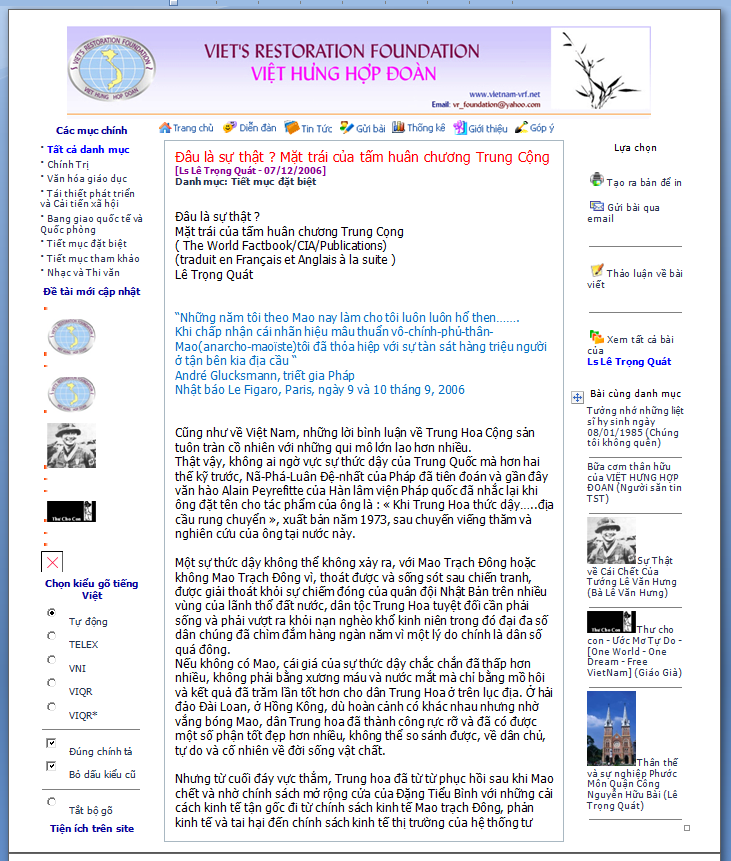
HL
----------o0o-----------

